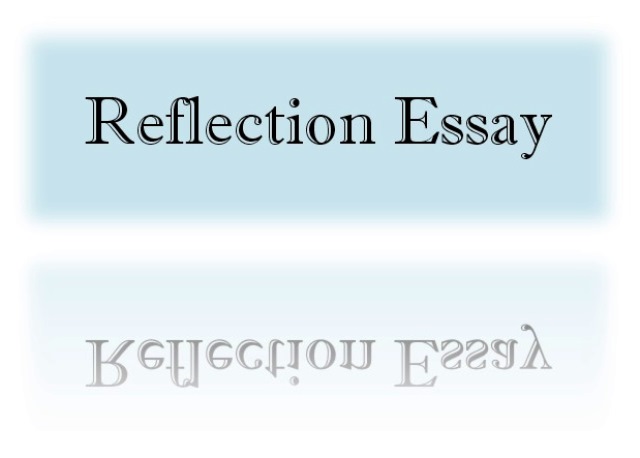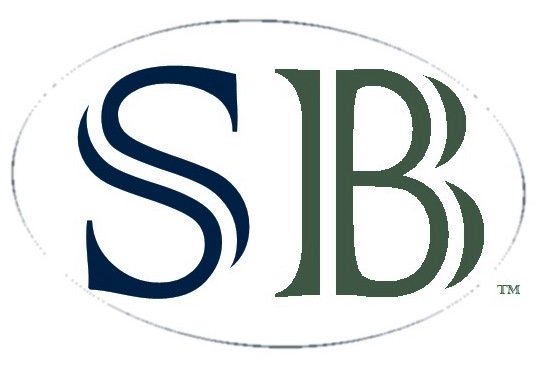How to Write a Reflection: 3 Easy Steps

University instructors usually don't show students how to write a reflection essay. Their focus is content subject matter--not a how-to writing course. (Unless, it is a writing or English course.)
But, it's needed.
Many students assume reflective writing is like a diary entry. (It's not.) And, this leads students to write reflection essays that babble on and on in a bland, list-like manner about the events or details of the experience--without really getting to the heart of reflecting ... and completing a writing assignment the way an instructor expects.
For example, if a reflection essay is supposed to be about a course book, students may instead write what the book was about (chronologically). If it's about an experience they had, they may just list everything that happened or state chronologically what they did. Some may share their opinions of the activity or whatever it is they are suppose to write about and hint at actual reflection. But, this is still not a reflection.
What does the instructor really want in a reflection essay?
The instructor is asking students to write about what they learned ... in a deep and profound way.
What is reflective writing?
Reflective writing is a form of writing where you explore what you learned through some experience. In the case of reflecting on a course book (i.e. a novel), it is your deeper understanding of the book--not the play by play restating of events from the book. The same is true if you're asked to write about an experience--it's not about listing everything that happened during that experience but how what you learned about yourself because of that experience changed or didn't change you.
Often writing a reflection becomes a never ending list of things the person feels the need to say. But that is not how to write a reflection essay either.
Good thinking leads to good writing.
And, that is the heart of what reflective writing is about--good thinking about what you experienced and what you learned as a result of that experience ... on a much deeper level.
That's what makes it challenging for people to write reflection essays. You can't just write what happened ... not what happened in a book or what happened to you. You have to think about that experience and make connections in ways that are not directly spelled out in the book or expected from the experience.
Reflection Writing Involves Writing from the Heart

Most people don't start writing from the heart. They think they have ... but usually only those who are naturally open to sharing themselves with others and those who've learned how to write a reflection by showing what's in their minds and hearts actually do produce reflective writing.
And, it’s those writers that keep their readers reading. This is because they offer their readers a pass inside their soul by revealing their thoughts and feelings as they show the reader what they are experiencing.
That’s why books are better than movies.
With books, the author reveals the character's thoughts, and you can truly understand their perspective, i.e. the character reflecting about something. Movies show you what the character experiences as they experience it from the outside, but books show you what happens to the writer on the inside AND outside. You get to see both.
Reflective writers give you the inside scoop and let you hear what the writer really thinks. And, shows you the physical action as well.
When you’re learning how to write a reflection, one technique you can use to show more of your soul, those inner most thoughts, is to think about and analyze the feelings you had when experiencing something.
Don’t just tell the reader you hurt yourself playing basketball, show the reader how you felt as you hurt yourself playing basketball.
To write a reflection essay, find your core feelings first. Then analyze what you learned from them. That's how to write a reflection essay ...
When you understand the source of your feelings, you understand yourself better. You also can relate to other people and situations more and do so with empathy.
Writing a reflection is a great way to realize what you’ve learned or understand how you’ve grown as a person.
It is through this personal growth in learning about ourselves that we become better equipped to understand others and communicate better with them--whether at home or in another country. And, during any type of interaction--business or personal.
That’s why learning
how to write a reflection is important. When you write about an experience, it
forces you to think differently about what happened.
How to Write a Reflection: 3 Easy Steps
Develop Deeper Thinking for Better Reflection Essays
Step 1: Ask these questions ...
Before you begin writing your reflection essay or even before you start your first rough draft, really think about and ask yourself these questions:
1. What?
What happened, specifically? Write out in one paragraph what happened or answer the assignment question. Just write it out. This will be like the diary or journal entry where you are working to capture all the details of what happened.
Example:
I cut my ring finger and it really hurt. I needed stitches and had to wear a huge bandage. Plus, I had to place an ice pack on my finger for two days. It particularly angered me during the second day, since that day was my birthday.
2. Why?
Why did you feel a particular way? Were you angry? Why did (fill in blank) make you angry? Think about the feelings you had. In the second paragraph, write about that.
Example:
I cut myself while chopping vegetables, and it really hurt. I was upset because the bandage on my ring finger was so thick there was no way I could wear my new engagement ring, which I received on my birthday.
3. Where?
Where did those feelings come from? No, really, what was the source of those feelings? Why were you really angry, if that's what you felt? It’s not really about (fill in blank)--in the example, the finger being cut, it is really about (fill in blank). When you can't determine where those feelings come from, sometimes it helps to meditate or to sit quietly for a moment. Sometimes asking this question in a prayer before bed helps, i.e. "I'd like to know why I was angry (or another emotion) and where that feeling really comes from. Was I really angry about (BLANK) or was I truly angry about something else? Help me answer this question... "
In the example below, the anger wasn't about the ring finger being cut and not being able to wear a ring--it was, but the deeper reason is revealed later in the paragraph.
Example:
Everyone cuts themselves from time to time. However, cutting my ring finger recently felt more devastating than usual. In this case, I felt more than physical pain. I also felt the emotional pain of anger and sadness. The sad feelings came from the fact that my boyfriend proposed to me on my birthday. I was angry with myself, because it was physically impossible to wear my new diamond, engagement ring. But, I was also sad that he couldn’t place the ring on my finger after I said “yes” since I cut that finger. My irresponsibility while chopping vegetables a few days earlier ruined my birthday surprise. Instead of watching what I was doing, I read a friend’s text. My boyfriend worked hard to earn the money to buy me a ring. Then he spent months finding the perfect one for me. That’s not even the most amazing part. He planned an entire proposal birthday party by himself, secretly using my Facebook friend list to invite the most important people to me. Relatives and friends I hadn’t seen in years came for my birthday--and to watch him propose to me. He even had my favorite restaurant cater the event. I loved the day, but in some ways I felt like my irresponsibility ruined his moment as much as I ruined mine.
The example above shows the heart of the reflection.
The author is mad at herself for cutting her finger, because her boyfriend didn't get to place the ring on her left ring finger for the first time on this special day in front of family and friends. And, she didn't get to experience receiving the ring the way she wanted to--having him place it on her left finger in front of those closest and most important to her.
She felt like she ruined his moment and hers.
That is the core emotion … and where the difficulty lies for writers.
The trouble is … you have to feel and/or at least acknowledge those unpleasant feelings again (when you think about that experience) in order to realize what truly made you feel the way you did. And, that can be difficult for some people.
In this example, she had to feel or acknowledge feeling upset or angry. Those feelings led her to find the root cause. In this case, disappointment in herself … that her mistake ruined a big day for both her and her boyfriend.
(Now, dear reader, I hear you saying ... "Well, he could just put the ring on the other, right hand, ring finger." True. You are correct, and that is a great suggestion. Perhaps through writing about this, the author of this piece may come to that conclusion--and did that day. But, the trouble still is the ring wasn't put on THE ring finger ... but at least she could wear it on the other hand, pending that she can and likes to wear jewelry on that hand. Remember, reflective writing is the learning that takes place because of reflecting on the experience and making those kinds of connections ... that's how to write a reflection with depth. Making those connections and sharing those in the essay. Whether or not the writer wore the ring on the other finger...now that's another story. :-) )
What you learned from something is the heart of a reflection essay.

If you can get use to reflecting in such a way that you can identify the source of your feelings, then you'll understand how to write a reflection essay in that way. You'll not only do the assignment correctly but gain a deeper understanding of yourself in the process.
And, that's exactly what instructors want you to do. That's how to write a reflection essay. It shows you learned something valuable.
Core emotions help you learn. Many times they guide your behavior. The pain of a bee sting reminds you not to play with bees in the future. (Or, to at least to be careful around them.)
It's our survival as humans.
Very painful and joyful emotions--the most extreme opposites of the emotional spectrum are what we remember most. It is in those moments where the deepest learning takes place. If you allow yourself to learn ...
For the author of the examples above, this is where she can see what she learned. What you learned is the heart of the reflection essay--it's what instructors look for when grading it. (Well, that and what ever else the instructor requires you to address in the essay.)
Now the writer can move on to write the first draft and then continue by concluding with what she learned. In this case, it's that her actions not only impacted her experiences negatively but others as well. This will make her more careful in the future.
Advertisement:
Step 2: How to Write a Reflection Essay
Once you’ve pre-written (step 1 above), it’s time to take those ideas and put them into print.
Your essay will be arranged like all other essays with an introduction, body (supporting paragraphs), and conclusion.
The length of the essay will depend on the essay requirements. A 500 word essay is usually about a page or two, if double spaced. (Example 3 above is only 205 words.)
For those shorter essays you have plenty of time to elaborate, as long as you use active voice.
Longer essays will give you more time to share. Select the details for your essay carefully. Make sure they apply to the main message--the core emotion, what you learned, and anything else the instructor wants you to include. Leave the rest out.
Step 3: The Revision Process
Once you’ve pre-written (step 1 above) and then wrote a rough draft of your essay (step 2 above), it’s very important to revise it.
Revising is not the last thing you do.
And, it's not just using only the spell checker.
This is where you look at the way you've constructed the piece. Look over what you’ve done. Read it. Ask someone else to, especially if it’s for a class grade. Ask them if your message is clear. (Do you know your message--do they know your message, i.e. what you wanted to say to your reader?)
Re-write any sentences that don’t make sense.
Look for homophones.
Look for typo errors where you mixed up the order of words or forgot a word.
Then, put the essay aside ... like completely. And don't look at it again for 12 to 24 hours.
At that time, re-read it (again). And, look for everything mentioned in Step Three above! (Yes, again. :-) )
(As you're learning how to write a reflection, you may want to see an example. Ask your instructor or a friend for one.)
Why learning how to write a reflection is a gift to yourself ...
How to write a reflection essay involves great self-reflection.
It helps you understand yourself more deeply, have empathy for yourself and become less hard on yourself (which is important), and grow in ways you never imagined. That is the gift of self-reflection.
Yes, your reflection essay will share what happened, why it happened, AND how that affected you. That’s the "what you learned" part. But, it helps you value and appreciate yourself and where you're at in your life's journey.
Once you learn how to write a reflection (and think in a more reflective way) and keep using those skills, it will become easier.
You may even enjoy writing reflections and even start doing them for fun--and even change the way you write in your personal journal. (May be even start one …)
Learning about you on a deeper level is something only you can truly appreciate--and you can keep that learning forever, if you choose.
Advertisement:







